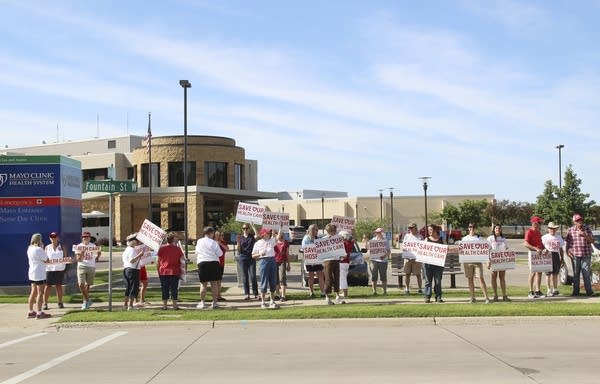Albert Lea hospital closes labor and delivery unit

Members of the group Save Our Healthcare stand with signs in front of Mayo Clinic Health System in Albert Lea, Minn., in June 2019 to mark the transition of Albert Lea's medical and surgical care unit to Austin.
Sarah Stultz | Albert Lea Tribune file
Go Deeper.
Create an account or log in to save stories.
Like this?
Thanks for liking this story! We have added it to a list of your favorite stories.


